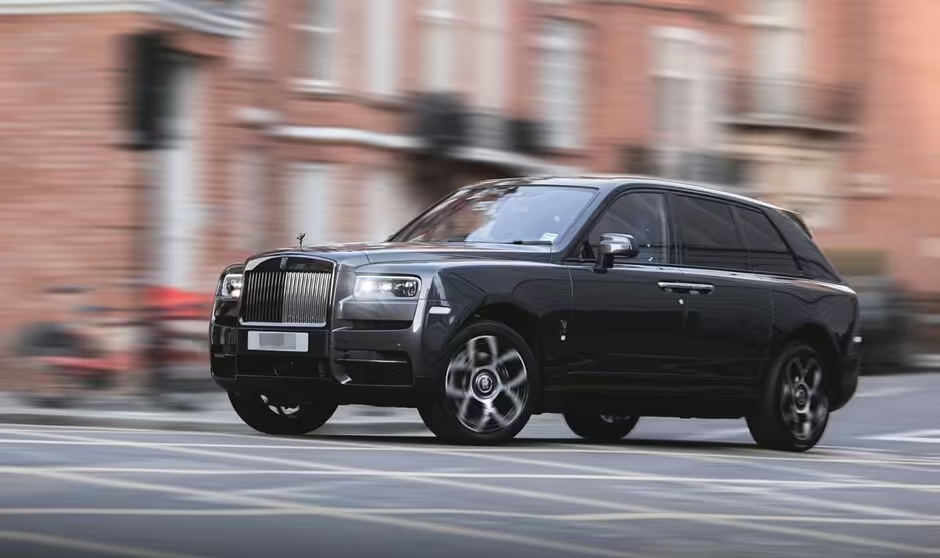London, The government is considering significant changes to the Vehicle Excise Duty (VED), commonly known as car tax, which could lead to higher costs for owners of SUVs. This potential reform is part of broader efforts to encourage greener vehicle choices and reduce emissions across the country.
Currently, Vehicle Excise Duty is calculated based on a vehicle’s CO2 emissions. Vehicles with higher emissions typically face higher taxes. However, there is growing concern that the current system does not adequately incentivize the purchase of environmentally friendly cars. SUVs, known for their size and often higher emissions compared to smaller vehicles, have become a focal point in discussions about reform.
Government sources suggest that one option being explored involves introducing additional fees specifically targeting SUV owners. These fees would be in addition to the standard Vehicle Excise Duty and would vary based on the vehicle’s size and emissions profile. The aim is to ensure that those driving larger, less fuel-efficient vehicles contribute more towards the environmental impact caused by their choice of vehicle.
Transport and environmental experts have welcomed the potential reform, arguing that it aligns with broader climate goals and encourages consumers to opt for vehicles that are more fuel-efficient and less polluting. By adjusting the tax system to reflect the environmental impact of vehicles more accurately, policymakers hope to steer consumers towards electric and hybrid vehicles, which generally have lower emissions than traditional petrol or diesel SUVs.
Critics of the proposed reform, however, warn that singling out SUV owners with additional fees could disproportionately affect certain demographics, including families who choose SUVs for their practicality and safety features. They argue that any changes to Vehicle Excise Duty should be fair and not penalize drivers for choosing vehicles that meet their personal or professional needs.
The potential reform of Vehicle Excise Duty comes amidst broader discussions about the role of taxation in tackling climate change. The UK government has committed to achieving net-zero carbon emissions by 2050 and sees transport as a critical sector where emissions reductions are necessary. Incentivizing the adoption of greener vehicles through tax policy is seen as a crucial step towards meeting these ambitious environmental targets.
If implemented, the reform could lead to a more nuanced and progressive approach to taxing vehicles in the UK. By incorporating both emissions and vehicle size into the taxation framework, policymakers aim to strike a balance between environmental impact and fairness to consumers. This approach could set a precedent for other countries grappling with similar challenges in reducing carbon emissions from road transport.
Public reaction to the proposed changes has been mixed, reflecting the diversity of opinions on how best to tackle climate change while respecting consumer choice and affordability. Proponents argue that higher taxes on SUVs are necessary to incentivize a shift towards greener vehicles and reduce air pollution in urban areas. Opponents, however, raise concerns about the potential financial burden on SUV owners and the need for alternative policies that promote sustainability without unfairly targeting specific vehicle types.
The government is expected to consult widely with stakeholders, including vehicle manufacturers, environmental groups, and consumer advocates, before finalizing any changes to Vehicle Excise Duty. This consultation process will likely involve assessing the economic, social, and environmental impacts of the proposed reforms to ensure they achieve the desired outcomes without unintended consequences.
In conclusion, while the specifics of the reform remain under discussion, it is clear that changes to Vehicle Excise Duty could have significant implications for SUV owners and the wider automotive market. As the UK continues to pursue its climate goals, the role of taxation in shaping consumer behavior towards more sustainable choices is likely to become increasingly prominent in policy debates.
As discussions unfold, stakeholders across the board will be closely watching how these potential reforms evolve and what impact they may have on the future of car ownership and environmental stewardship in the UK.
Also Read
Classic Car Owners Fear ‘Q-Plate’ Threat: A Potential Reality Check
Classic Car Owners Push Back Against Proposed Mileage Limits for Taxation
Electric Revolution: EVs Close in on Price Parity with Petrol Cars in the UK
The Future of Driving: Exciting New Cars Coming in 2024 and Beyond
